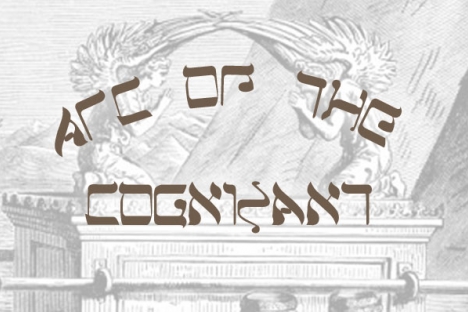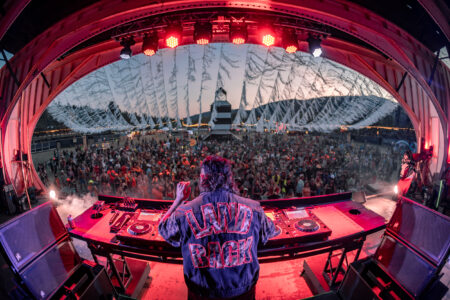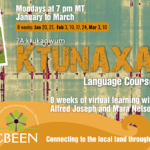Column: Experiments in Human invention as Western Civilization loses force
“How do you pay for war and leave us dying?… We don’t see the world the way you do.” Neil Young, The Restless Consumer
“The West won the world not by the superiority of its ideas or its values or its religion, but rather by its superiority in applying organized violence. Westerners often forget this fact; non-Westerners never do.” Samuel P. Huntingdon
Consumer Warning
Readers are unlikely to agree with many of the assertions I make here today. But I do insist that they at least accept there’s a consensus among scholars of history and politics, that the West, our home civilization, is no longer the hegemonic nor supreme power on the planet that it so obviously was in 1990.
Today I’ll avoid footnotes and appendix; readers can find relevant resources if they’re curious, as I’ve provided many such in columns this year.
All conjectures in the following column are predicated on the stimulating prospect ahead for we Westerners as we wrestle with the severe challenges facing our human species now.
Why something, not nothing?
The question above is the start of many Philosophy 101 courses. Why is there a cosmos? And why do we exist? It would be simpler if there were nothing at all.
Experiment without Experimenter
A tentative answer, not a final one, is that what is now in existence is simply an accident and an experiment. It is because… it happened. Experimentally. But that does not mean there is an Experimenter. There’s not necessarily a God who is observing the experiment. It might be totally random. Or not.
Life
Life is another experiment. Human life, the one we love, is an experiment. No one of our species can tell us why we are here. But here we are. Now… live!
Intelligence and Consciousness
Our great human brains possess a wonderful quality called intelligence, and into it another vast phenomenon has rooted, to experiment with our life-form. The phenomenon I refer to is Consciousness, the third ingredient with Matter and Energy, that is fundamental to existence. I maintain consciousness is not “emergent” but has the same status as energy. (see Arc # 199 )
Organism’s Intelligence and non-organic A. I.
We humans are organic life, with intelligence. Consciousness does not enter non-organic intelligence. A. I. is not conscious. It is unlikely to ever be. A. I. is our experiment, not an experiment like life that happened randomly.
An experiment by A. I. on its inventors
“… the algorithms of these {social-media} platforms discover by experimenting on millions of human guinea pigs that the easiest way to increase user engagement is by spreading hate and anger and greed.” — Yuval Harari, Globe and Mail Oct. 19
Dominance of planet = end of other hominins*
Our species, homo sapiens, is the last of a category of hominins left after all the others were extinguished.
We do not know why the others, like Neanderthal, died out. Their DNA is present in minute amounts within our own. Are we to blame for extinctions? That is a question very much being actively investigated by scientists.
[ * a primate of a taxonomic tribe ( hominini ), which comprises those species regarded
as human, directly ancestral to humans, or very closely related to humans.
“fossil footprints reveal ancient hominins” ]
Experiments in human ways of life, never abandoned
1. agriculture
Humans have a secure, stable food source, that necessitates appropriating landed property and tending the soil and crops. Nomadism is rendered moot.
2. urban civilization, State, class society
Humans can live in concentrated locales, densely settled, due to food supply. Divisions and hierarchy between the worker on private land owned by a “lord” who takes crops as rent, is possible; with class division, the State is invented as the apparatus of the lordly-clerical minority over the laboring majority.
3. religion
Humans had spiritual practices (e.g. funeral ceremony) before agriculture, but with urban life and class hierarchy the spiritual specialists – priests/clergy – take tribute from workers to pay for their intercession with supernatural powers.
Lords and priests share an interest in keeping the workers subservient. Humanist values cannot dominate when religion rules. Humanism flourishes when religion loses dominance.
4. Western Enlightenment: humanism, secularism, rationalism, science
The West breaks out of a pattern for homo sapiens that includes stupendous change in material sciences, particularly medicine, weaponry, engineering and mathematics, empowering this small part of the world (Euro-America) to rise to dominance on the planet.
Rationalist belief displaces, undermines and enfeebles religion’s power, leading to secularism. This mortal world, not the afterlife, commands human attention. The State separates from the Church.
5. Modern era
Modernization entails a break with the human past so radical that it seems impossible to go back to the traditional ways of all our former history. Capitalism, science, secularism, and rise of politics to displace religion, are hallmarks of modernity. Individualism of a completely novel variety emerges.
6. Colonizing imperial West
The West rules almost all the globe; one particularly-successful colony, America, itself ascends to hegemony of the West by 1945. The non-Western world is subsumed into modernity by this hegemony; a reaction will result.
7. New experimental Society
America, the irresistibly-innovative social order, provides a model to the West and beyond of secular, democratic, liberal, free-market, capitalist, materialist, technological, culture. It’s the beacon, the gold standard, the barometer, of a way of human life no other culture can hold at bay… until the 21st century. Its political ideals are paradigmatic for the West. It makes the U.N. possible.
Anyone wanting a précis of just what the values of “the West” are, in law, politics and human-rights concepts, can grasp them by a read of the UN Declaration of Universal Human Rights signed in December 1948.
8. massive human population
Human numbers climb from one billion in 1830 (for the first time ever in history) to over eight billion now. The planet has never been so fed-upon. There has never been so much consciousness of this type on the planet before.
9. Modern globalized civilization
In the period of Western hegemony, a global civilization whose formation was dependent on the economic and geopolitical power of the West, emerged. It bears all the hallmarks of the Western way.
Other once-dominant cultures in specific zones of Earth – China, Islam, India, Persia for e.g.— question that the West has evolved a universal-human code of rights and values. Still, the “international world order” — organized around capitalism, the U.N. and its subsidiaries, and the electronic and space-industrial network — is a Western-originated order. Chinese intellectuals have been told by the Party ruling their nation that their task now is to refute the order that has so far prevailed.
Modernity began in the West. Who can claim the credit?
10. the experimental class in modern Western social order
A class of people in the West, summed up as “middle” or “bourgeois”, has both driven the hegemony of our civilization over the globe, and simultaneously enjoyed levels of affluence, leisure, health, and education, unprecedented in history. American middle-class individuals are the most privileged on earth in these enjoyments, and as the West declines in power over Earth, their class privileges will shade into a relative diminution as the affluence of other zones of the planet rise.
This class has high expectations of remaining large and privileged, but the likelihood of that is not great. Will they resist the lessening of their fortunes with martial exertions of American power? Will the challenge of the BRICS nations and their client-states be met only in the sphere of economic and scientific-technological competition?
A pattern in human history
Peoples who’ve been dominant and are observing their slide into weaker status, have not, historically, accepted the slide peacefully. Rome fought many wars on its way into obsolescence and defeat by outside nations from the north and east. Islam fought its decline after 1600. The British, French, and US new world order, laid the once-mighty caliphate and Muslim empires low.
China built a wall and fought constant wars against neighbours on all its borders — until it succumbed to the US, Europe, Japan and the USSR in the nineteenth century; now it has clawed its way back to be leader of an alignment of places trying to break free of the “Western world order”, with other “BRICS” as powerful friends in the challenge to the West.
War is not just imminent; at this moment, the attack by Russia on Ukraine and by Israel on several of its neighbours (“the seven-front war” as Netanyahu calls it), are exactly the kind of wars demonstrating an old hegemony in decline; its weakness is tested on battlefields. A major war between the US alliance and a Russo-Chinese-developing world alignment, is more probable than not.
A failure of my imagination
As a member of the great Western middle class giving my allegiance to our traditions of politics, human rights, science, culture, and morality, I cannot imagine our ways being supplanted by any other civilization whose values I consider higher than our own. And that is exactly the problem. A universal human culture does not exist. One ends up having to make some choices.
Who will do the hard things? Those who can.
My sub-title is a rabbinic aphorism. Who do we look to for solutions to things like climate change, capitalist collapse, war and old horrors like famine, poverty, and plague? Who can offer the solutions?
I have to say, that same experimental class that has brought us this far in the West. Yes. People not so different from myself: Western, postmodern, middle-class! Let the non-western peoples offer their alternatives.
Conclusions: 1 mage, 1 nation
I have written myself into a corner, admitting the failure of my imagination to foresee solutions to Western-originated problems coming from outside the West. A major reason I say this, is that the position of women here is far advanced beyond anything I see outside. If patriarchy lasts outside, we will prevail.
Now I have a project for future editions of the Arc: applying what I know of history to depict plausible unfolding of the future, with different lenses and perspectives beyond the limited ones that Western civilization has evolved. I know Charles Eisenstein has been attempting the very same thing, so I refer readers to his essays at substack as an introduction.
The possibilities of non-Western ways rising to the position the West has hitherto enjoyed need to be explored imaginatively. I hope I am capable.

























